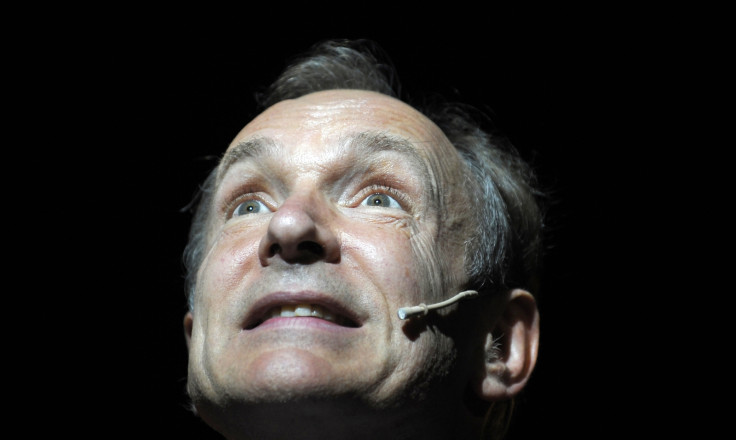Fake news, losing control of personal data and political advertising: Is the internet broken?
We examine the reasons Tim Berners-Lee says his invention is under threat and ask if he's right.
In March 1989, Sir Tim Berners-Lee submitted a proposal for an information management system to his boss, Mike Sendal, at the European Organisation for Nuclear Research (Cern), one of the world's largest and most respected centres for scientific research.
Sendal's response was succinct: "Vague, but exciting."
A year later Berners-Lee wrote the first web browser. The rest, as they say, is history. Today the internet is a multi-faceted behemoth used for everything from scientific research to posting videos of dogs and cats. It is used by everyone from the leader of the free world to start fights with raps stars to schoolchildren in developing countries trying to break the cycle of poverty.
For many billions of people, the internet is now a crucial part of their everyday lives — but Berners-Lee believes it is broken and is threatening what underpins democracy in the West.
In a Guardian article written to mark the 28th anniversary of submitting his proposal, Berners-Lee singles out three major threats to his vision of the internet as "a tool that serves all of humanity."
- Losing control of our personal data
- The ease of spreading misinformation on the web
- Political advertising threatening democracy
Berners-Lee certainly has a point that all three threaten his dream. "I imagined the web as an open platform that would allow everyone, everywhere, to share information, access opportunities, and collaborate across geographic and cultural boundaries," he said.

The problem is that Berners-Lee was an academic and scientist whose vision was not tainted by any political or commercial considerations. He wanted to connect the world and give everyone, everywhere, access to all the information in the world.
But that is not the internet we have today. The internet we have today does allow for information to be shared easily and quickly across the globe in an instant, and it does allow for those without access to formal education to learn, but that is a sideshow compared to the primetime aspects of the internet dominated by Facebook, Google and Apple.
Ask someone in Indonesia about the internet and many will point you to Facebook because so dominant is Zuckerberg's network there that many people believe it is the beginning and the end of the internet.
To share or not to share personal data?
The internet is able to operate the way it does because people are willing to trade their own information for access to social networks, news content, video, music and games.
For those of us who grew up before it became ubiquitous our first thought is not to share. But for anyone born since Berners-Lee submitted that proposal there is a tacit understanding that access to the myriad "free" online tools — everything from Snapchat to WhatsApp — means giving away some of their data. It is how the internet has grown to become the economic giant it is today.
Yes, many younger people have no sense of where the boundaries should be drawn when it comes to sharing, and yes, companies such as Facebook, Google, Apple etc should be doing more to educate them about the dangers. But suggesting we have lost control of our personal data is misleading. We have not lost control of it, we have simply given it away.
It should also be noted that Berners-Lee's invention is very young, less than three decades old. As a mainstream technology it has only been part of our daily lives for under 20 years and so is effectively still a teenager.
As such, it's angry a lot of the time and isn't really all that helpful.
Fake news failing the internet?
Fake news is clearly a problem but Berners-Lee saying it is one of the major issues threatening the future of the internet is a bit overblown. Rewind 12 months and no one — not even the inventor of the internet — was talking this way about a phenomenon which has taken on so much more importance because of its link to the US election.
But fake news has been around for a lot longer than that. In Africa fake news spreads like wildfire, focusing a lot of the time on misleading health information and threatening the lives of those who read it. Without doubt it is an issue and needs to be addressed but it is one of the growing pains of the internet and we will figure out how to solve the problem. The internet is too important to the way the world works for us not to figure it out.
As for political advertising, Berners-Lee's main argument appears to be that politicians are leveraging the sophisticated technology now available online to target specific ads at specific people. "Targeted advertising allows a campaign to say completely different, possibly conflicting, things to different groups. Is that democratic?" he asks.
Well, if it isn't then no Western country has been a democracy for a long time. Politicians saying different things to different people is something which has been happening forever — it's just that previously it happened on our doorsteps rather than in our Facebook feeds.
Berners-Lee is clearly worried about his invention and he is right to highlight issues that do need addressing. However, calling any of these a threat to the future of the internet as a vital tool for everyone to use is overstating the problems.
© Copyright IBTimes 2025. All rights reserved.






















